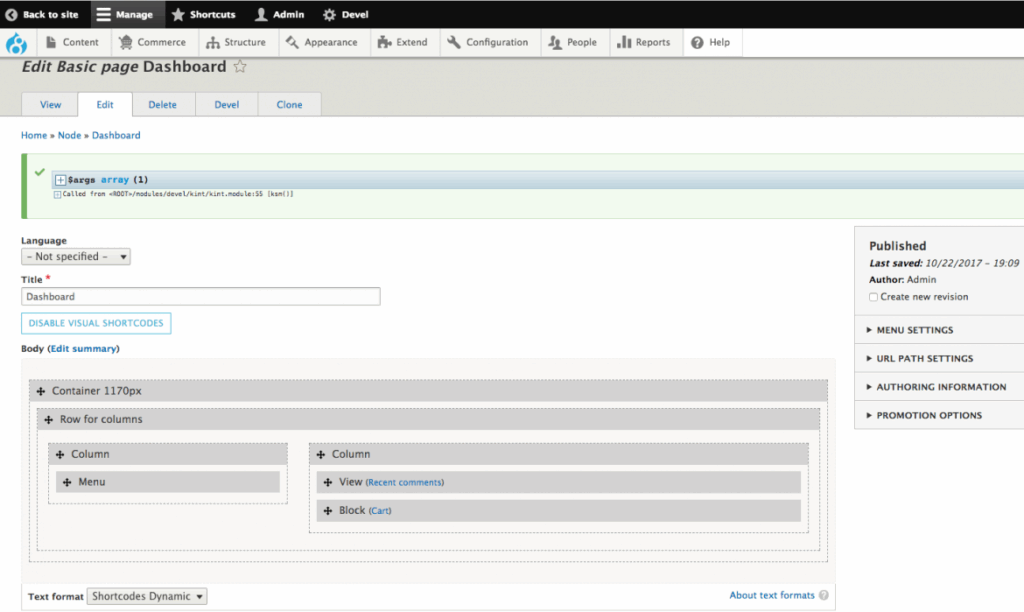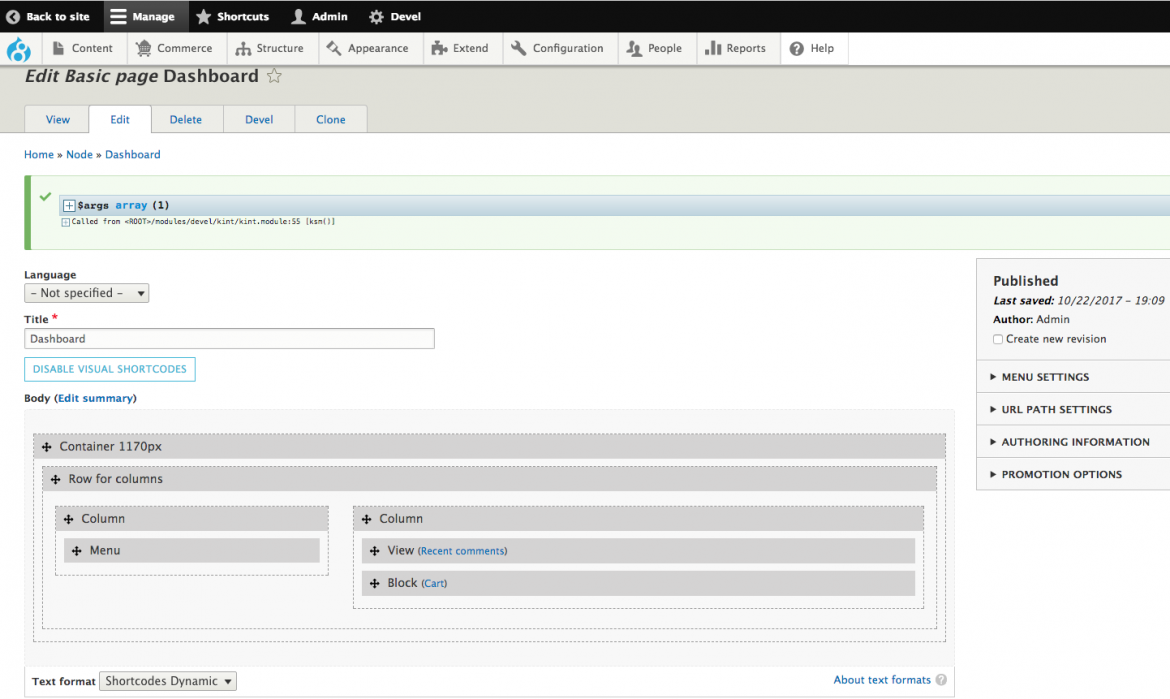
Unlocking the Power of CMS Programming: A Comprehensive Guide
In today’s digital landscape, a robust and adaptable website is crucial for success. Content Management Systems (CMS) provide the foundation for building and managing these websites, and understanding CMS programming is essential for developers who want to customize and extend the capabilities of these platforms. This guide delves into the world of CMS programming, exploring its core concepts, benefits, and practical applications.
What is CMS Programming?
CMS programming refers to the development and modification of CMS platforms to meet specific requirements. Unlike simply using a CMS to manage content, CMS programming involves writing code to create custom themes, plugins, modules, or even modify the core functionality of the CMS itself. This allows developers to tailor the CMS to perfectly fit the needs of their clients or organizations.
Core Concepts of CMS Programming
- Themes: Control the visual appearance of a website, including layouts, colors, and typography. CMS programming allows for the creation of custom themes that reflect a brand’s unique identity.
- Plugins/Modules: Extend the functionality of a CMS by adding new features and capabilities. CMS programming enables the development of plugins for e-commerce, social media integration, SEO optimization, and more.
- Core Modifications: Altering the fundamental code of a CMS, which is generally discouraged unless absolutely necessary, as it can impact future updates and security. CMS programming at this level requires a deep understanding of the CMS architecture.
- API Integration: Connecting the CMS to external services and applications through Application Programming Interfaces (APIs). CMS programming facilitates seamless integration with tools like CRM systems, payment gateways, and marketing automation platforms.
Why Learn CMS Programming?
There are numerous benefits to acquiring CMS programming skills:
- Enhanced Customization: Go beyond the limitations of pre-built themes and plugins to create truly unique and tailored website experiences. CMS programming allows for pixel-perfect control over every aspect of a website.
- Increased Functionality: Develop custom features and integrations that address specific business needs. CMS programming enables the creation of highly specialized solutions that are not available out-of-the-box.
- Improved Performance: Optimize CMS performance by streamlining code and eliminating unnecessary features. CMS programming can help reduce page load times and improve user experience.
- Career Opportunities: The demand for skilled CMS programming professionals is high, as businesses increasingly rely on customized CMS solutions. Mastering CMS programming opens doors to a wide range of lucrative career paths.
- Greater Control: Gain complete control over the CMS and its underlying code, allowing for easier troubleshooting and maintenance. CMS programming empowers developers to manage and optimize their websites effectively.
Popular CMS Platforms for Programming
Several CMS platforms offer robust programming capabilities:
WordPress
WordPress is the most popular CMS in the world, known for its ease of use and extensive plugin ecosystem. CMS programming in WordPress primarily involves PHP, HTML, CSS, and JavaScript. Developers can create custom themes, plugins, and modify the core functionality using WordPress’s API. The WordPress community is vast and supportive, offering a wealth of resources for learning and troubleshooting.
Drupal
Drupal is a powerful and flexible CMS favored by developers for its advanced features and scalability. CMS programming in Drupal also relies heavily on PHP, but Drupal’s architecture is more complex than WordPress. Drupal offers a robust API and a modular design, making it ideal for building complex and customized web applications. Drupal’s learning curve is steeper than WordPress’s, but its capabilities are unmatched for large-scale projects.
Joomla!
Joomla! is another popular CMS that offers a balance between ease of use and flexibility. CMS programming in Joomla! involves PHP, HTML, CSS, and JavaScript. Joomla! provides a framework for building extensions and templates, allowing developers to create custom solutions for a variety of applications. Joomla! is known for its strong community and its focus on security.
Other CMS Options
Beyond these three, other CMS platforms like Craft CMS, ExpressionEngine, and Umbraco also offer CMS programming capabilities. Each platform has its own strengths and weaknesses, and the best choice depends on the specific requirements of the project.
Essential Skills for CMS Programming
To excel in CMS programming, developers need a strong foundation in the following skills:
- PHP: The primary programming language for most CMS platforms.
- HTML: The foundation of web content, used to structure and format web pages.
- CSS: Used to style and control the visual appearance of web pages.
- JavaScript: A scripting language used to add interactivity and dynamic behavior to web pages.
- MySQL/MariaDB: Database management systems used to store and retrieve data for the CMS.
- Version Control (Git): Essential for managing code changes and collaborating with other developers.
- Understanding of CMS Architecture: A deep understanding of how the CMS is structured and how its components interact.
- API Knowledge: Familiarity with the CMS’s API and how to use it to extend its functionality.
- Security Best Practices: Knowledge of security vulnerabilities and how to prevent them in CMS applications.
Getting Started with CMS Programming
If you’re interested in learning CMS programming, here are some steps to get started:
- Choose a CMS: Select a CMS platform that aligns with your interests and career goals. WordPress is a good starting point for beginners, while Drupal is better suited for more experienced developers.
- Learn the Fundamentals: Master the core programming languages (PHP, HTML, CSS, JavaScript) and database concepts (MySQL/MariaDB).
- Explore the CMS Documentation: Familiarize yourself with the CMS’s documentation and API reference.
- Start with Simple Projects: Begin with small projects like creating a custom theme or plugin.
- Contribute to Open Source: Contribute to open-source CMS projects to gain experience and learn from other developers.
- Take Online Courses: Enroll in online courses or bootcamps that focus on CMS programming.
- Join the Community: Engage with the CMS community by attending meetups, joining forums, and participating in online discussions.
Best Practices for CMS Programming
Adhering to best practices is crucial for creating robust and maintainable CMS applications:
- Follow Coding Standards: Adhere to the CMS’s coding standards to ensure consistency and readability.
- Use Version Control: Always use version control (Git) to track code changes and collaborate with other developers.
- Write Clean Code: Write clean, well-documented code that is easy to understand and maintain.
- Test Thoroughly: Test your code thoroughly to ensure that it works as expected and does not introduce any bugs or security vulnerabilities.
- Optimize Performance: Optimize your code for performance to reduce page load times and improve user experience.
- Secure Your Code: Implement security best practices to protect your CMS applications from vulnerabilities.
- Keep Up-to-Date: Stay up-to-date with the latest CMS updates and security patches.
- Document Your Work: Document your code and processes to help others (and yourself) understand your work in the future.
The Future of CMS Programming
The field of CMS programming is constantly evolving, driven by advancements in web technologies and changing user expectations. Some key trends shaping the future of CMS programming include:
- Headless CMS: Decoupling the content repository from the presentation layer, allowing for greater flexibility and control over how content is delivered.
- API-First CMS: Designing CMS platforms with a strong focus on APIs, making it easier to integrate with other systems and applications.
- Low-Code/No-Code Platforms: Providing tools and interfaces that allow non-developers to create and customize CMS applications with minimal coding.
- AI-Powered CMS: Integrating artificial intelligence (AI) to automate tasks, personalize content, and improve user experience.
- Serverless Architecture: Deploying CMS applications on serverless platforms, reducing infrastructure costs and improving scalability.
As these trends continue to evolve, CMS programming professionals will need to adapt and acquire new skills to remain competitive. The demand for skilled CMS programming experts will continue to grow as businesses increasingly rely on customized CMS solutions to power their online presence. [See also: Choosing the Right CMS for Your Business] [See also: Advanced WordPress Development Techniques]
Conclusion
CMS programming is a valuable skill for developers who want to create customized and powerful web applications. By mastering the core concepts and best practices of CMS programming, developers can unlock the full potential of CMS platforms and build innovative solutions for a wide range of clients and organizations. Whether you are a beginner or an experienced developer, there is always something new to learn in the ever-evolving world of CMS programming.

